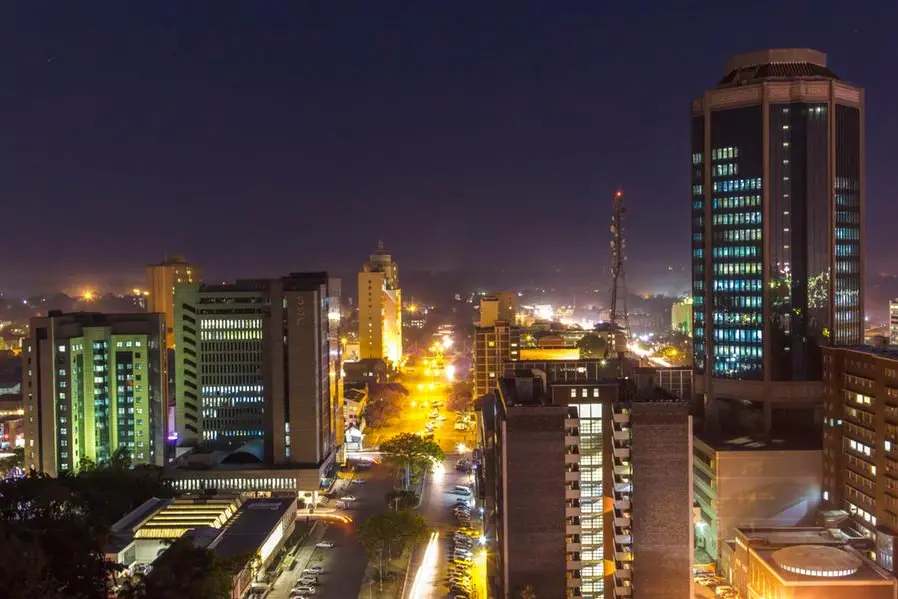PHOTO
As economic situations worsen, more people are finding it difficult to gain employment, inflation continues to soar and this has led to an increase in migration from the country to other parts of the world.
After a rather controversial election, the incumbent President Emmerson Mnangagwa won at the polls and citizens are sceptical about what the future holds for them in this new era under the same leadership. In this article, we evaluate the economic and socio-political occurrences in Zimbabwe within the past few months.
The Zimbabwe Currency is losing value
Considering that the overall confidence of global investors is largely influenced by the health of the U.S. economy, which is determined by the S&P 500 index and shown on the S&P 500 futures chart, it’s not surprising that the most remarkable stock surge of the year is occurring in Harare, Zimbabwe, where the market has soared by over 800% since the beginning of the year, according to Bloomberg. The S&P 500 futures chart represents a window that reveals the performance of E-mini S&P 500 futures while reflecting broader market sentiment.
Invariably, futures refer to derivative contracts between two parties to buy or sell a commodity or asset at a specific price and a later date. So, when the ES future chart indicates a positive investors’ sentiment, it can indirectly attract more investment to commodity-based countries and emerging economies like Zimbabwe where the U.S. dollar is used for foreign transactions.
However, in a nation that has experienced numerous economic crises, this doesn’t seem like a call for celebration. Domestic investors have flooded into the stock market with the aim of safeguarding the worth of their currency, given that inflation surged to 176% in June. Presently, the central bank has set its primary lending rate at a staggering 150%, making it the highest in the world.
For more than a decade, Zimbabwe’s economy has suffered hyperinflation, causing severe damage to the nation’s currency. Reports have it that some citizens were informed that there was a scarcity of bank notes when they went to make withdrawals. In the current year, the Zimbabwe dollar has experienced a sharp decline, with a loss exceeding 80% in just the past few months, and the downward trend persists.
National Budget Strategy for 2024
In a bid to curb the economic crisis and foster growth, Professor Mthuli Ncube who is the Finance and Economic Development Minister has released the 2024 National Budget strategy themed “Consolidating Economic Transformation” that projects a total expenditure of $33,1 trillion and a total revenue of $30,7 trillion. This implies that the National Budget has a deficit of $2,3 trillion.
The National Budget Strategy aims to improve domestic mobilisation of resources, attract foreign and indigenous investments through projects and progammes aimed at achieving National Development Strategy 1 (NDS-1) priorities. These NDS-1 priorities includes: devolving power, promoting decentralization, and wisely managing national resources to benefit every citizen.
Prof Ncube further elaborated that the economy of Zimbabwe is projected to grow by 5,3 percent during 2023, exceeding the initial projection of 3,8 percent. Nevertheless, he does not rule out the possibility of risks like the volatility of the exchange rate, and price that may affect the positive economic outlook.
Drowning in Debt
Many social commentators have applauded President Emmerson Mnangagwa for the job he has done in the area of infrastructure development like the construction 360.4 miles road that connects the Harare to the major border with South Africa. The other side of the story however is that Zimbabwe owes foreign lenders like African Development Bank (AfDB) and World bank approximately $14 billion which has resulted in its inability to access additional long term international capital.
In the midst of it’s Debt woes, Zimbabwe now relies on China for loans to build infrastructures like the $1 billion expansion of a 600-megawatt coal-fired power plant. This expansion aims to alleviate the severe power shortages that have affected both businesses and households.
Zimbabwe is seeking to restructure its debt, and has leaned towards the African Development Bank (AfDB) to lead this bid. However, in May, the president of AfDB, Akinwumi Adesina said that Zimbabwe will need the assistance of western governments whose support will depend largely on the outcome and conduct of the just concluded elections. With so much concerns around the credibility of the elections, it is hard to tell if the debt restructuring bid will be actualized.
© Copyright The Zimbabwean. All rights reserved. Provided by SyndiGate Media Inc. (Syndigate.info).





















